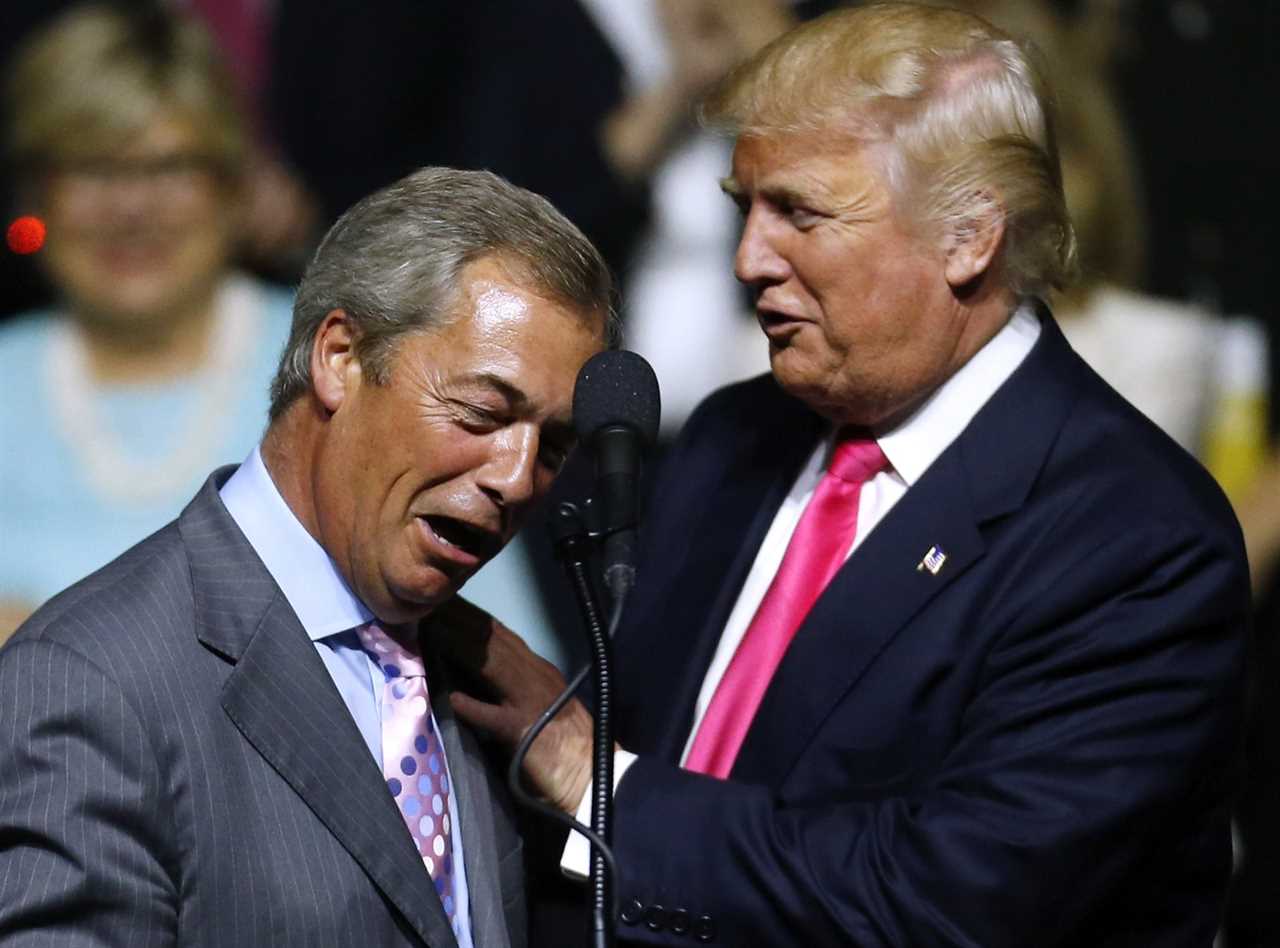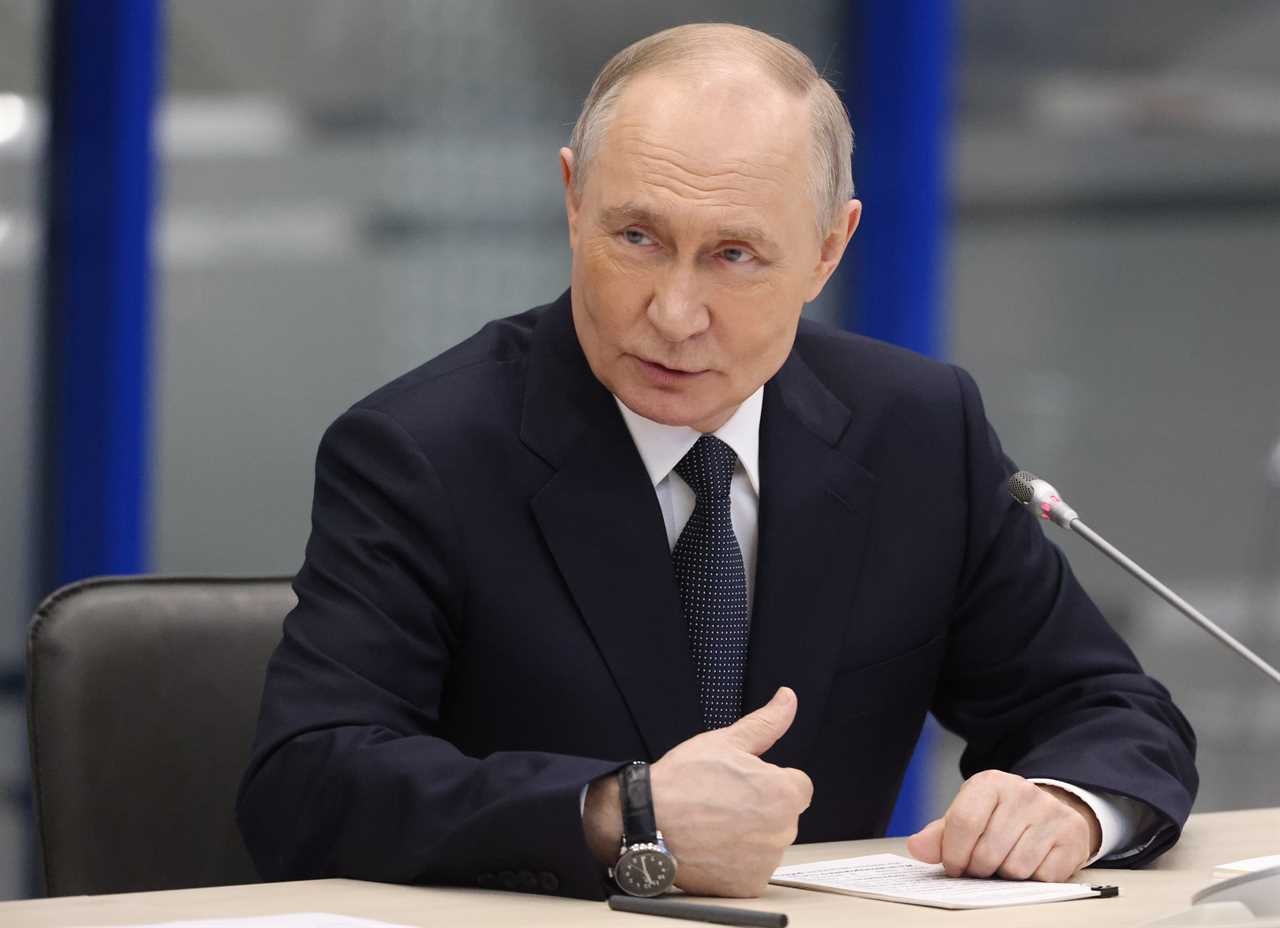
Challenging Trump’s Approach to the Ukraine Conflict
Nigel Farage, leader of the Reform UK party, has thrown cold water on US President Donald Trump’s proposed peace deal with Russia, expressing concerns it may inadvertently bolster Vladimir Putin’s standing. Farage’s comments mark a potential strain in the relationship between the UK’s prominent political figure and the US administration.
Farage Advocates for a Balanced Peace Agreement
In a recent interview with the BBC, Farage outlined his reservations about the current direction of US negotiations with Moscow. He emphasised the importance of achieving peace without tipping the scales in Putin’s favour, suggesting that the existing approach may not fully address the complexities of the conflict.
Discrepancy in Peace Negotiation Strategies
Farage indicated that his strategy for brokering peace with Russia would differ from that of the Trump administration. He stressed the need for a deal that is fair and does not leave Russia in a position of undue advantage, highlighting his commitment to an equitable resolution.
Revisiting Past Stances on Russia
The Brexit-era politician has a history of controversial statements regarding Russia. Following questions about his earlier remarks that suggested Putin was “actually on our side,” Farage clarified his current position. “There's no point looking back then, we are where we are now,” he stated, focusing instead on the present dynamics of the conflict.

Criticising Western Actions Post-Crimea Invasion
Farage has previously accused Western nations of provoking Russia, particularly after the 2014 annexation of Crimea. His perspective underscores a broader critique of the West’s role in escalating tensions, positioning himself as an advocate for a more measured and balanced approach.
Equitable Peace: A Universal Desire
Farage reiterated that while the desire for peace is universal, the terms of any agreement must be just. “We want a peace deal, surely everybody wants a peace deal, but it needs to be equitable,” he asserted, calling for negotiations that respect Ukraine’s sovereignty without granting excessive concessions to Russia.
Concerns Over Russia’s Gains from the Deal
Expressing unease about the current trajectory of the peace negotiations, Farage observed that “it appears Russia is getting far too much.” This statement reflects his apprehension that the proposed terms may favour Moscow more than Kyiv, potentially undermining long-term stability in the region.
Trump’s Draft Minerals Deal Under Scrutiny
Leaked documents reveal that President Trump is pressuring Ukraine to cede control of half its oil, gas, and metal resources in exchange for US support. Farage’s warnings align with concerns that such a deal could leave Ukraine economically vulnerable and increase Russian influence.
Economic Implications of the Proposed Deal
The draft minerals agreement reportedly demands that Ukraine hand over major natural resources and infrastructure to the US until it repays an £81 billion war debt with interest. Farage’s stance suggests that such terms could have significant long-term repercussions for Ukraine’s economic sovereignty.
Potential Fallout Between UK and US Leaders
Farage’s public critique of Trump’s negotiation strategy may lead to tensions between the UK and US leaders, especially as both nations navigate the complexities of the Ukraine conflict. The divergence in approaches underscores the challenges in achieving a unified front against Russian aggression.
Looking Ahead: The Path to a Sustainable Peace
As the international community seeks a resolution to the Ukraine crisis, voices like Farage’s highlight the necessity of balanced and fair negotiations. Ensuring that any peace deal does not disproportionately benefit one party is crucial for lasting stability and the restoration of Ukraine’s territorial integrity.
Frequently Asked Questions
How does lobbying influence politics?
Lobbying involves advocating for specific interests or causes to influence lawmakers and policy decisions. While lobbying can provide valuable information to legislators, it can also lead to concerns about undue influence and corruption.
What is political accountability?
Political accountability refers to the obligation of elected officials and government institutions to be answerable to the public for their actions and decisions. Mechanisms for accountability can include elections, audits, and transparency initiatives.
What is the function of the executive branch?
The executive branch is responsible for implementing and enforcing laws, managing the day-to-day operations of government, and administering public policy. It is headed by the president or prime minister, depending on the country's system.
Statistics
- Approximately 60% of eligible voters in the United States participated in the 2020 presidential election, marking the highest turnout rate in over a century.
- As of 2023, approximately 25% of countries have implemented some form of digital voting, reflecting the shift towards technology in the electoral process.
- Research indicates that around 80% of individuals in democracies feel that their government does not adequately represent their interests.
- Polling data indicates that over 50% of Americans support the idea of ranked-choice voting as a method to improve electoral fairness.
- As of 2023, public trust in government institutions has declined, with only 20% of citizens expressing confidence in their national governments.
- Historically, voter turnout among young people (ages 18-29) increased by 50% from the previous election cycle in the 2020 presidential election.
- Approximately 90% of political campaigns in the U.S. utilize social media as a primary tool for outreach and engagement with voters.
- Surveys show that nearly 70% of voters prioritize environmental issues when selecting candidates for public office.
External Links
How To
How To Participate in Political Debates
Participating in political debates requires preparation and composure. Begin by researching the topics to be discussed, ensuring you have a solid understanding of various perspectives. Prepare your arguments and anticipate counterarguments, allowing for a well-rounded discussion. Practice articulating your points clearly and confidently. During the debate, listen actively to others and respond thoughtfully, maintaining respect even in disagreement. Engaging with the audience and using credible evidence to support your claims can enhance your effectiveness in the debate setting.
Did you miss our previous article...
https://hellofaread.com/politics/keir-starmer-challenges-new-sentencing-guidelines-accuses-judges-of-bias
 PoliticsRoyaltySoap OperaGamingMoneyPrivacy PolicyTerms And Conditions
PoliticsRoyaltySoap OperaGamingMoneyPrivacy PolicyTerms And Conditions
